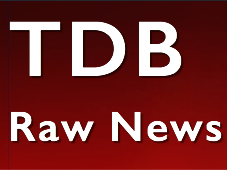Headline: Barry Coates: Release the TPP negotiation documents
 An opinion piece from Oxfam’s Executive Director Barry Coates, as published in the New Zealand Herald on February 21, 2014
An opinion piece from Oxfam’s Executive Director Barry Coates, as published in the New Zealand Herald on February 21, 2014
Many trade negotiators use the bicycle analogy: “If you don’t pedal to keep the bike moving, it will fall over.” This is often used to justify the push for new trade negotiations such as the Trans-Pacific Partnership agreement (TPP).
 But if you’re cycling towards the cliff, this is not good advice. In today’s world, the cliff means financial crises and unregulated speculators, trillions of dollars in tax havens, powerful and poorly regulated corporations, growing inequality and dangerous climate change.
But if you’re cycling towards the cliff, this is not good advice. In today’s world, the cliff means financial crises and unregulated speculators, trillions of dollars in tax havens, powerful and poorly regulated corporations, growing inequality and dangerous climate change.
At the start of another TPP negotiating session, the text is still a secret. It is time for the Government to stop hiding what it is negotiating. This is not really a trade agreement – only five of 29 chapters are about what most people recognise as trade negotiations. If it was just a trade agreement, fewer people would be worried. But this is mainly about domestic laws. It restricts the powers of governments to regulate in ways that might adversely affect the freedoms of foreign companies.
Even the most rudimentary democracy should require governments to tell Parliament about major changes to policy and regulation. Democracy needs transparency. But in this case, transparency is even more necessary. It is the rights of government that are up for negotiation. The proposal for investor-state dispute settlement would allow a foreign corporation that considers itself to have been adversely affected by government regulation or policy to sue our government, not in our courts, but in an international tribunal.
As a first step, the Trade Minister, Tim Groser must respond to the growing calls for transparency and release the negotiating documents so they can be subjected to parliamentary scrutiny and informed public debate.
Groser has said he does not want transparency because he does not want to negotiate in the media. There is a reason for this. The more people find out about this draft agreement, the more they realise it is not want we want or need in New Zealand.
Many of the proposals in the TPP negotiations are not new. There have been previous attempts to give sweeping new rights to patent holders, more rights to banks and finance companies, rights to companies exporting genetically modified organisms and rights to companies allowing them to challenge government laws on protecting the environment or promoting public health.
Similar proposals for the extension of corporate rights were proposed in the Multilateral Agreement on Investment in 1995 and in proposals for “new issues” in the World Trade Organisation in 1997. After opposition from NGOs and civil society, academics and researchers, businesses and citizens across the globe, these proposals were dropped.
But the large companies lobbying for these agreements did not give up. When the World Trade Organisation started to get too democratic and started negotiations that would respect the rights of developing countries (the Doha Development Round), they switched their attention to a new forum, the TPPA.
We should not allow this agreement to be signed in anything like its current form.
The question for New Zealand and other countries is what kind of international agreements we need. Is our major problem a lack of rights for multinational corporations? Or is our challenge to strengthen our domestic economy and agree fair rules for international trade, while respecting the environment, the rights of workers and the inclusion of all?
The priority should be better policies so our economy supports decent jobs and small business, our tax system ensures everyone pays their fair share, our environment and public health are protected, and companies are properly regulated to avoid more Pike River accidents, finance company collapses and leaky homes.
This means we need a better balance of rights and responsibilities for companies and citizens. Stop pedalling the TPP bicycle and release the text.
—






” . . . But this is mainly about domestic laws. It restricts the powers of governments to regulate in ways that might adversely affect the freedoms of foreign companies.”
Yep – Barry Coates, you are exactly right on this point.
” . .Groser has said he does not want transparency because he does not want to negotiate in the media. ”
And yep, you are exactly right on this point too.
Apparently Groser does not understand the “watchdog” role of the media, and more importantly, the role of media-informed public opinion in a democracy.
That is a MAJOR failing in a democratically-elected politician. Perhaps Tim Groser needs to look up the Oxford English Dictionary definition of “DEMOCRACY”?
However, I suspect that this is all pretty much “par for the course” for this current National-led ‘government’ of NZ. Here is the essence of their approach:
First: Get elected democratically.
Second: Forget the underlying principles of democracy.
And hey, while you’ve got that dictionary open, Tim, also look up the definitions of “arrogance”, “stupidity” and, next year, hopefully, “FAILURE” as a politician.
(You know, along the lines of Max Bradford, who promised us all that deregulation of the electricity market would result in falling electricity prices to consumers. [Just to cite one example of failure].)
Comments are closed.